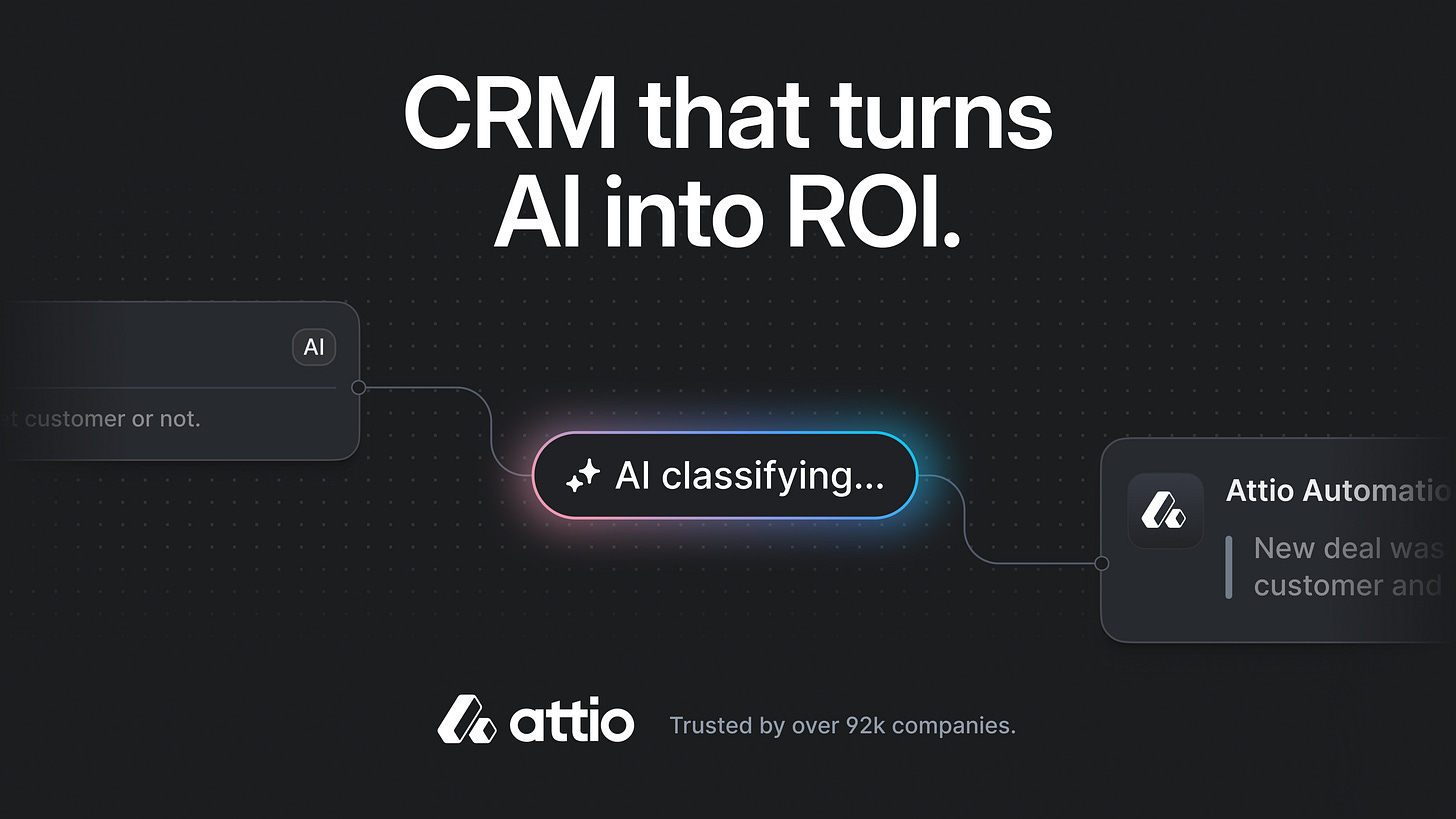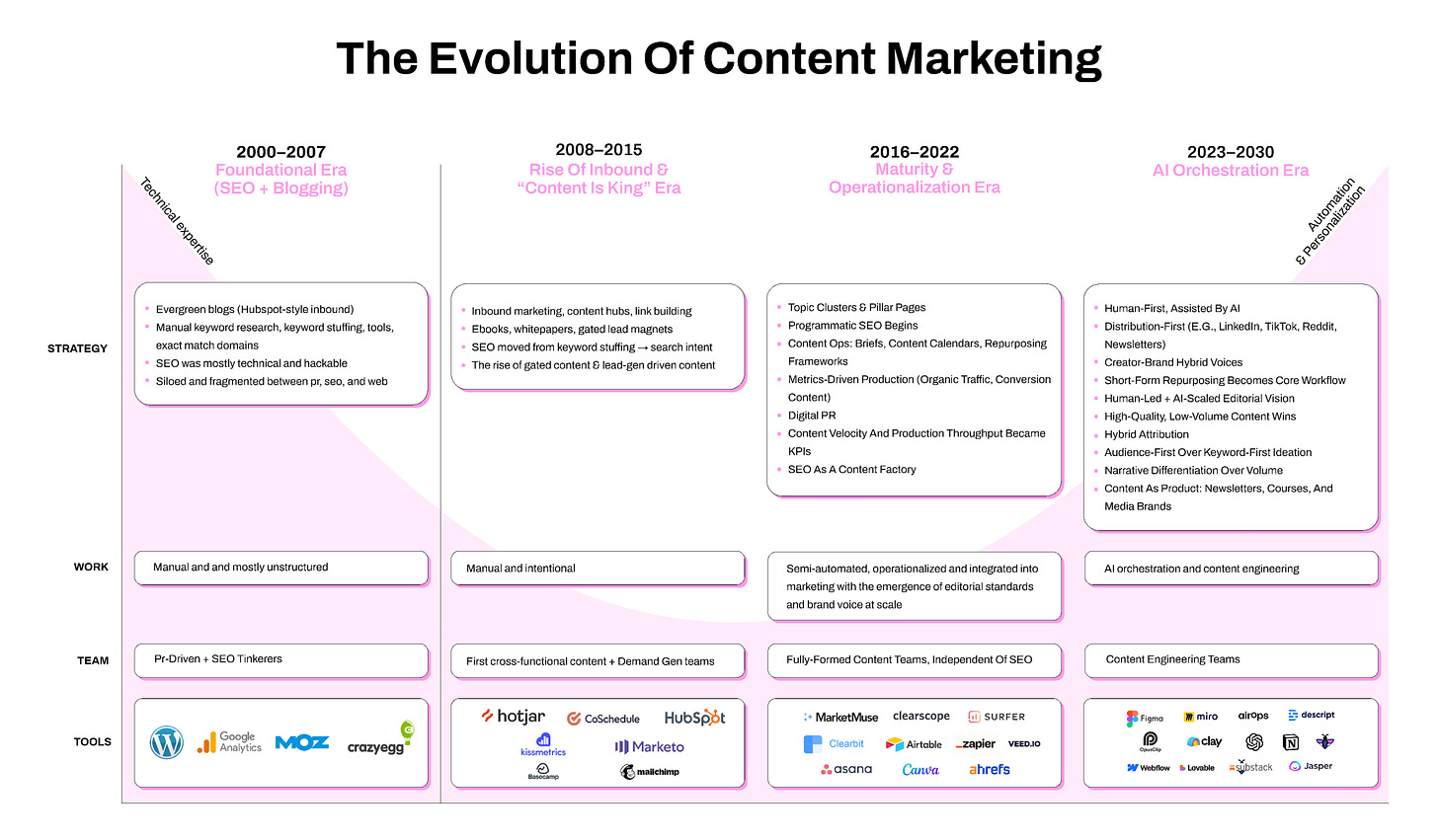The evolution of content marketing
Content marketers have a choice: evolve or get left behind
👋 Hey, I’m George Chasiotis. Welcome to GrowthWaves, your weekly dose of B2B growth insights—featuring powerful case studies, emerging trends, and unconventional strategies you won’t find anywhere else.
This note is brought to you by Attio.
I launched a new company a month ago.
The CRM we use is Attio.
And I wouldn’t recommend it here if we weren’t customers ourselves.
It’s a modern CRM that doesn’t feel like it was built in 2008.
Clean UX, fast, and powerful where it matters.
Some of the features we rely on:
Enrichment and AI fields that actually save time
Call intelligence to analyze conversations and spot signals
Powerful workflows to automate the boring stuff (e.g., company research)
Sequences you can combine with workflows for outreach, follow-ups, and pipeline building
They also have a solid freemium plan that is perfect for small teams that want to build momentum without the usual CRM friction.
I started my career in content marketing.
I spent a lot of time building and executing content strategies for B2B SaaS companies at my first agency, Minuttia.
Eventually, I became interested in areas beyond content and expanded my skillset.
The more I dive into other aspects of marketing and growth, the more I realize that for most companies without a clear, defensible moat, content marketing is still one of their best marketing channels—even with volatility in organic search and shifting perceptions of cost and execution.
And that’s not just for acquisition.
So, this note is going to be about content marketing.
How we got here, and how companies can come out on the other side.
The evolution graph
Here’s a graph that captures the different stages of content marketing from its early days (circa 2000) to today:
I came into the game in the third period, “Maturity & Operationalization.”



